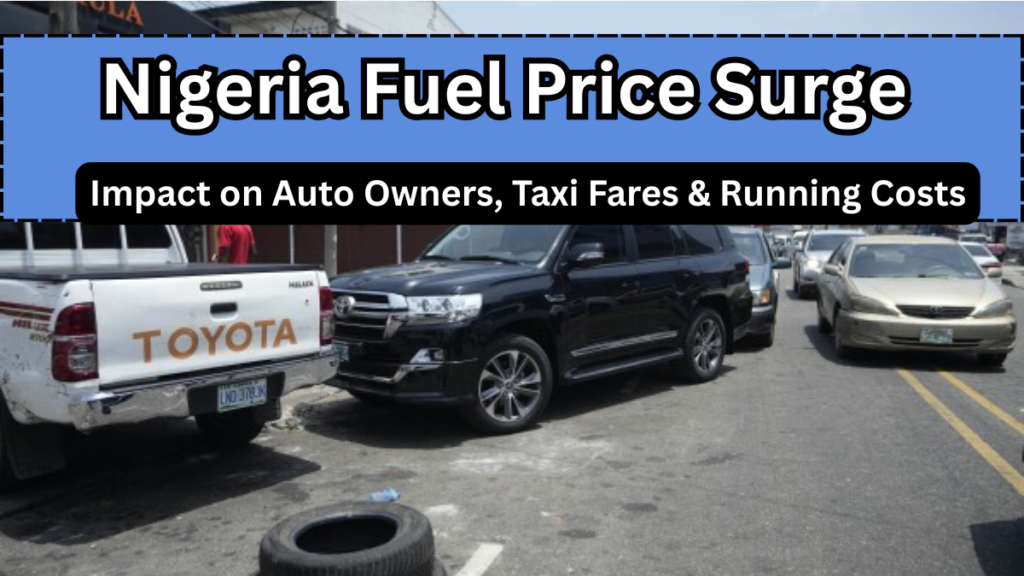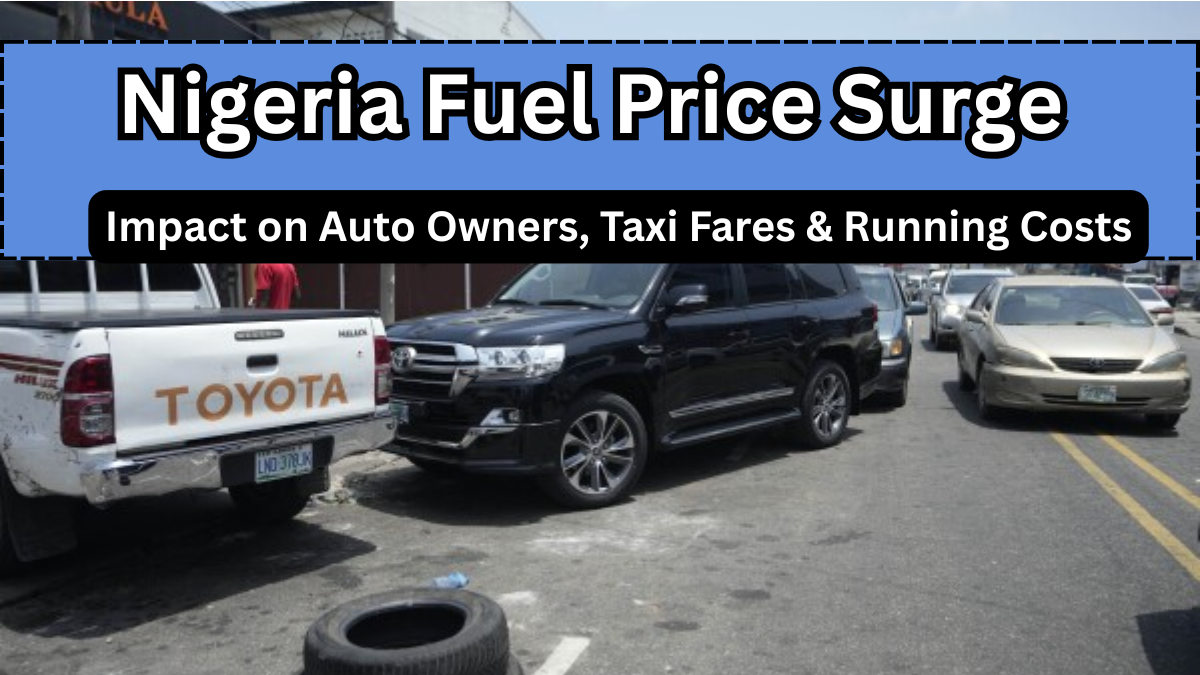The year 2025 has brought a wave of economic shifts, and one of the most pressing changes hitting Nigerian households is the steep petrol price hike Nigeria 2025. From urban drivers to local taxi operators and logistics businesses, the ripple effects are being felt across the board.
But what exactly is changing, and how should auto owners prepare? Let’s break it down.

Rising Fuel Prices: A Quick Overview
Nigeria has seen petrol prices shoot up by nearly 35% in early 2025, sparking concerns across the transport sector and everyday commuters.
Key Drivers of the Price Surge:
-
Global crude oil price volatility
-
Reduced government fuel subsidies
-
High importation and distribution costs
-
FX rate pressures
Nigeria Fuel Price Impact on Auto Sector: A Deep Dive
This price increase is doing more than just pinching wallets. It’s transforming how people use their cars, operate taxis, and plan for logistics.
Effects on Private Vehicle Owners
-
Reduced driving frequency: Many are now limiting non-essential trips
-
Vehicle pooling on the rise: Neighbours and friends are sharing rides to split costs
-
Shift to fuel-efficient cars: Increased interest in hybrids and smaller engines
Impact on Commercial Drivers & Transport Businesses
-
Taxi fares increased by 20-30% in major cities like Lagos and Abuja
-
Keke Napep and Okada riders are raising rates or reducing service areas
-
Logistics companies are adjusting delivery charges or exploring alternative fuels
Comparative Table: Cost Changes After Petrol Price Hike
| Category | Before Hike (₦/Litre) | After Hike (₦/Litre) | % Change |
|---|---|---|---|
| Petrol Price | ₦320 | ₦432 | +35% |
| Average Taxi Fare (Lagos) | ₦700 | ₦950 | +36% |
| Daily Fuel Spend (Private Car) | ₦2,000 | ₦2,700 | +35% |
Economic Consequences Beyond the Wheel
The Nigeria Fuel Price Impact on Auto Sector is bleeding into other industries too.
-
Delivery & Courier services are rethinking fleet management
-
Small business costs are rising due to increased transportation expenses
-
Public transport remains overcrowded as more people ditch personal cars
Coping Strategies for Nigerians
To cushion the impact of the petrol price hike Nigeria 2025, here’s how individuals and businesses are adapting:
-
Ride-sharing apps are seeing increased usage
-
Electric bikes and scooters gaining popularity in urban hubs
-
Remote work options are being embraced to reduce commuting
FAQs
Q1: Why did fuel prices in Nigeria increase in 2025?
The main reasons include global oil market instability, exchange rate fluctuations, and the government’s removal of fuel subsidies.
Q2: How is the petrol price hike affecting taxi fares?
Taxi fares have surged by up to 30% in major cities, with commercial drivers adjusting rates to keep up with higher running costs.
Q3: Will this fuel price hike affect vehicle purchases?
Yes, many buyers are now seeking fuel-efficient or alternative energy vehicles as a long-term cost-saving measure.
Q4: What can car owners do to save on fuel?
Owners are encouraged to carpool, perform regular vehicle maintenance, reduce air conditioning use, and plan efficient routes to save fuel.
Final Thoughts
The Nigeria Fuel Price Impact on Auto Sector isn’t just a statistic—it’s a real challenge for millions. While the petrol price hike Nigeria 2025 has created short-term hurdles, it’s also sparking a shift in how Nigerians think about mobility and sustainability.
Being informed and adaptive is the key to navigating this fuel-led transformation.
Click here to learn more
Sachin is a dedicated writer specializing in education, career, and recruitment topics, delivering clear and actionable insights to empower readers.
